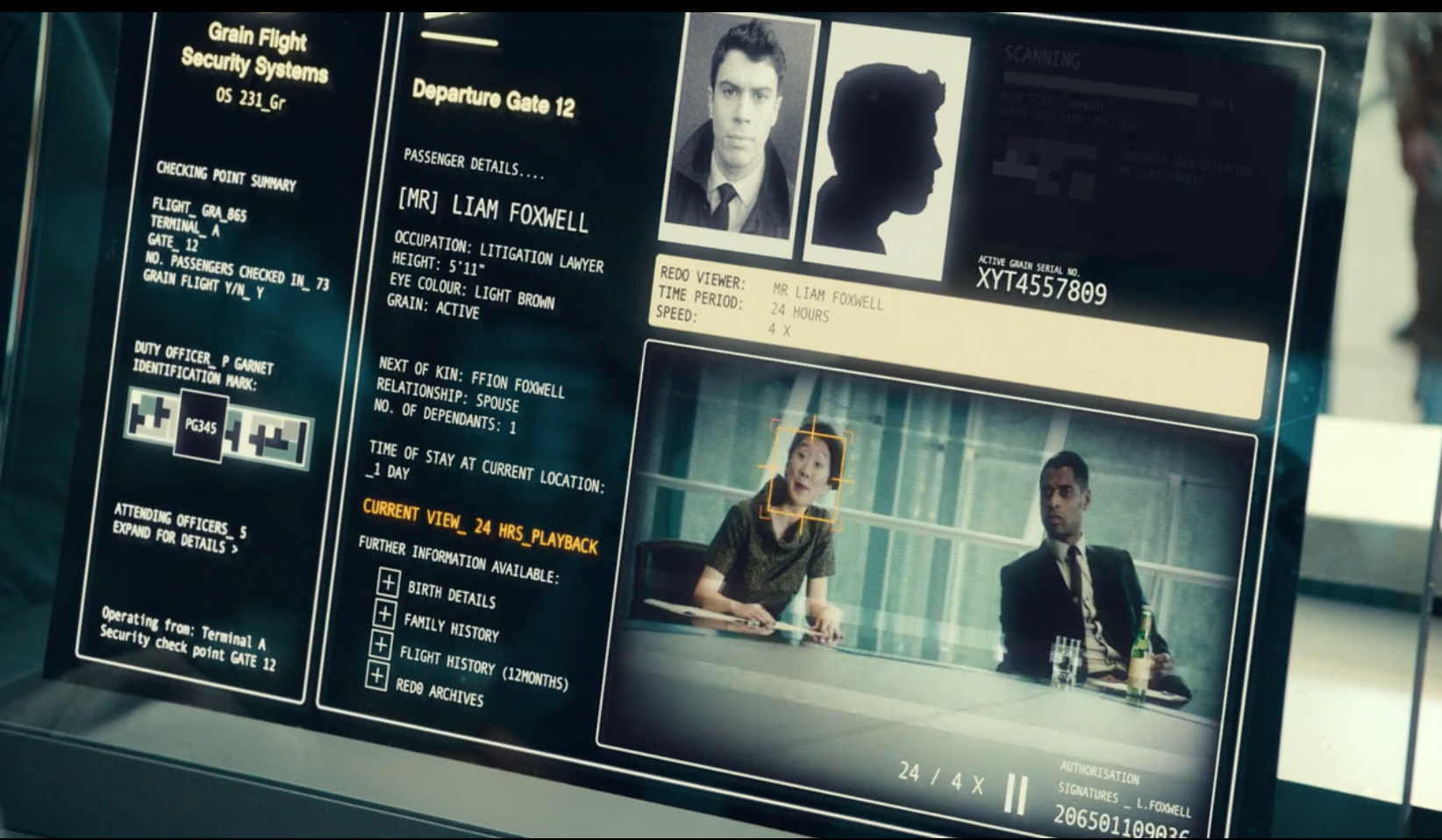Surveillance
The Grain technology featured in the episode shows unprecedented capacity for surveillance, both implied and directly shown. Since the Grain allows users to store their memories in high quality for an indefinite time, both locally and online, the government could theoretically use this information for its own purposes. For example, in the episode the main character goes to an airport for a flight, and is screened by security. The security officers don’t check his bags or search his body, instead asking for access to his memories – the past 24 hours, the past week at a faster speed, and possibly the past month at a still faster speed. For obvious reasons this is a blatant privacy violation and ultimately a form of surveillance – one where anyone wishing to travle long-distance is subject to the analog equivalent of having security officers retroactively follow them around for a month or more.
Worse, nothing really stops the government from simply saving these memories for an indefinite time – they could use them to conduct surveillance on massive amounts of people, even those who never travelled through an airport. A Grain “backup service” is also referenced during the episode, implying that it’s possible to store memories in the cloud (read: someone else’s computer), which the government could theoretically ask for access to. There has already been a case where the government asked for access to an Amazon Alexa’s voice recordings (which turned out not to exist, because that’s now how Alexa works) as part of a criminal investigation – even though that request failed, it shows that even our own government of the present would probably be willing to issue the same request for Grain records. Again, this kind of surveillance would include anyone seen by a Grain user, so even a fraction of the population with the Grain could have devastating surveillance implications.
